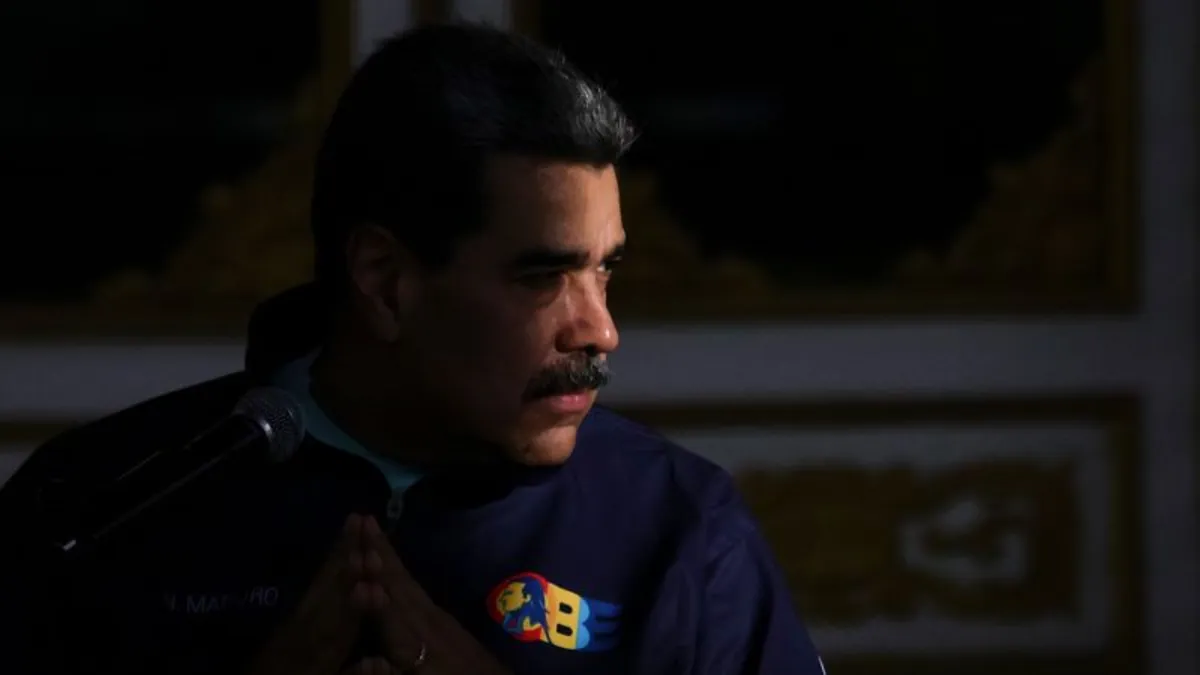
The Trump administration is poised to gain expanded authority to take action against Venezuela starting Monday. This move comes as the United States officially designates Venezuelan President Nicolás Maduro and his government allies as members of a foreign terrorist organization. The designation of the so-called “Cartel de los Soles” is viewed by experts as more of a description of allegedly corrupt government officials rather than an organized crime group. This designation will empower President Donald Trump to impose new sanctions targeting Maduro’s assets and infrastructure.
While the designation does not explicitly authorize the use of lethal force, legal experts suggest it could still provide the administration with broader military options for actions within Venezuela. Administration officials are advocating that this designation—one of the State Department’s most serious counterterrorism tools—could enhance the U.S. military's strategic capabilities in the region. The term “Cartel de los Soles” refers to a decentralized network of Venezuelan military groups allegedly involved in drug trafficking, although Maduro has consistently denied any personal involvement in such activities.
The announcement, made on November 16, aligns with a significant military buildup by the U.S. in the region. The U.S. military has deployed over a dozen warships and 15,000 troops as part of what the Pentagon has termed “Operation Southern Spear.” This operation has already seen the U.S. military conduct strikes against targets linked to drug trafficking, resulting in numerous fatalities. President Trump has been briefed on various options for action inside Venezuela, which include potential strikes on military or government facilities as well as special operations raids.
Despite the administration’s strategic plans, there is notable public opposition to U.S. military involvement in the region. A recent CBS News/YouGov poll revealed that 70% of Americans oppose military action in Venezuela, while only 30% support it. Furthermore, 76% of respondents feel that the Trump administration has failed to clearly communicate its position regarding military action in the country. Officially, the administration claims its primary aim is to reduce illegal flows of migrants and drugs, although regime change remains a potential outcome of these efforts.
President Trump has indicated some willingness for a diplomatic resolution, noting last week that Maduro “would like to talk” and expressing openness to a conversation “at a certain time.” However, the White House has yet to respond to inquiries regarding the status of any potential dialogue between Trump and Maduro.
In a clear sign of heightened tensions, the U.S. recently conducted its largest military display near Venezuela. Reports indicate that at least six U.S. aircraft, including a supersonic F/A-18E fighter jet, a B-52 strategic bomber, and reconnaissance aircraft, were observed off the coast of Venezuela over several hours. Additionally, three international airlines canceled flights departing from Venezuela after the U.S. Federal Aviation Administration issued warnings about a “potentially hazardous situation” for flights over the country.
This evolving situation continues to develop, and further updates will be provided as new information becomes available. CNN’s Avery Schmitz contributed to this report.